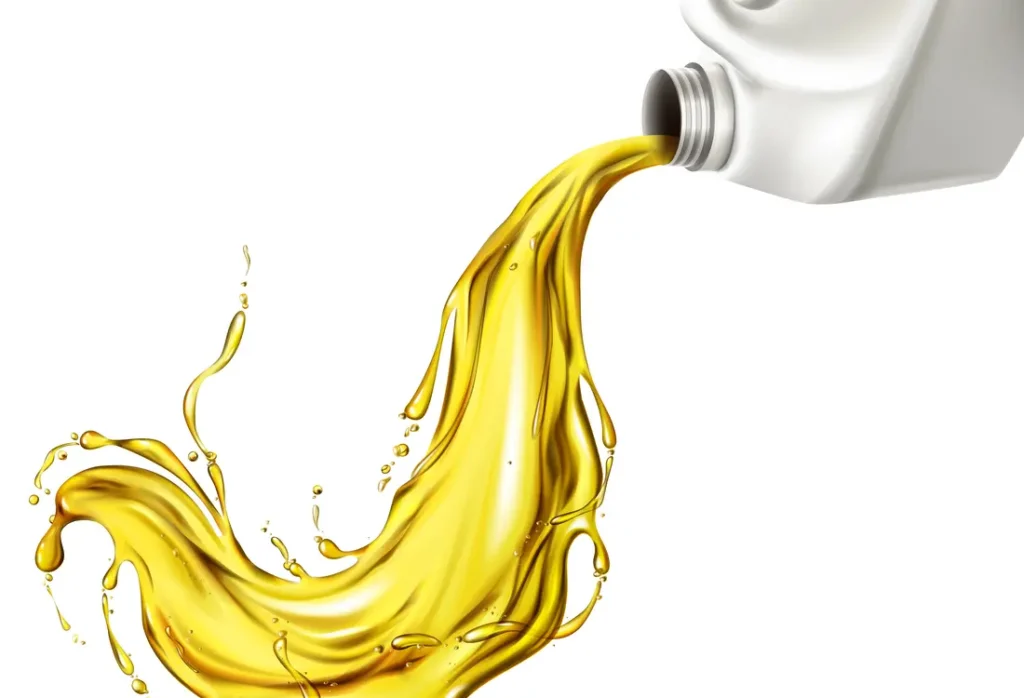Car Fluids: Ever wondered why your car sometimes doesn’t run as smoothly as it should? Have you noticed strange noises or performance issues, but can’t pinpoint the cause? One crucial aspect of vehicle maintenance that often gets overlooked is checking your car fluids regularly. This article will guide you through the top five car fluids you should check regularly to keep your car in peak condition.
If you want to avoid costly repairs and extend the lifespan of your vehicle, this guide is for you.
Why Are Car Fluids So Important?
Car fluids play a critical role in maintaining the essential functions of your vehicle. Whether it’s keeping the engine cool, ensuring smooth transmission shifts, or providing adequate braking power, each fluid serves a specific purpose. Regular maintenance and checks can help prevent breakdowns and improve the overall performance of your car. So, which car fluids should you be focusing on?
The Top 5 Car Fluids to Check Regularly

1. Engine Oil
Why It’s Important:
- Engine oil lubricates the internal components of your engine, reducing friction and preventing overheating. It also helps keep your engine clean by trapping dirt and debris.
When to Check It:
- Check engine oil at least once a month or before a long trip.
- Change it every 3,000 to 5,000 miles, depending on your car’s specifications and driving conditions.
How to Check:
- Use the dipstick under the hood. Pull it out, wipe it clean, and then insert it back in. Pull it out again and check the oil level and color.
Signs It Needs Attention:
- Low levels, dirty or black oil, unusual engine noise.
Pro Tip: Always ensure you’re using the right grade of oil as recommended by your vehicle’s manufacturer.
2. Coolant (Antifreeze)
Why It’s Important:
- Coolant prevents your engine from overheating by regulating the temperature. It also prevents corrosion and deposits from forming inside the cooling system.
When to Check It:
- Check coolant levels every 6 months, especially before summer and winter.
- Replace it every 30,000 miles or as per the vehicle’s manual.
How to Check:
- Look for the coolant reservoir under the hood. The level should be between the ‘MIN’ and ‘MAX’ marks.
Signs It Needs Attention:
- Engine overheating, visible leaks, low coolant levels.
Pro Tip: Never open the radiator cap when the engine is hot. It can lead to serious burns.
3. Brake Fluid
Why It’s Important:
- Brake fluid is essential for effective braking. It transfers force into pressure, amplifying the braking power in hydraulic systems.
When to Check It:
- Check brake fluid every time you change the oil or at least every six months.
- Replace it every 20,000 to 45,000 miles or as recommended by your vehicle’s manual.
How to Check:
- Locate the brake fluid reservoir, usually found near the firewall of the engine compartment. Ensure the fluid is between the ‘MIN’ and ‘MAX’ lines.
Signs It Needs Attention:
- Spongy or slow brake response, low fluid levels, or a warning light.
Pro Tip: Always use the correct type of brake fluid (DOT 3, 4, or 5) specified in your owner’s manual.
4. Transmission Fluid
Why It’s Important:
- Transmission fluid keeps the gears shifting smoothly and prevents overheating. It acts as a lubricant for moving parts inside the transmission.
When to Check It:
- Check transmission fluid every 30,000 to 60,000 miles or as recommended in your car’s manual.
- For vehicles with automatic transmissions, check the fluid more frequently.
How to Check:
- With the engine warm and running, locate the transmission dipstick, pull it out, and check the fluid level and color.
Signs It Needs Attention:
- Rough gear shifts, slipping gears, or fluid that appears dark and dirty.
Pro Tip: Use only the manufacturer-recommended transmission fluid type to avoid damage to your vehicle’s transmission system.
5. Power Steering Fluid
Why It’s Important:
Power steering fluid allows easy maneuvering of your vehicle by lubricating the steering system. Without it, steering would become much more difficult, especially at low speeds.
When to Check It:
- Check power steering fluid every 6 months or during routine maintenance.
- Replace it every 50,000 miles or as suggested by the vehicle’s manufacturer.
How to Check:
- Locate the power steering reservoir, and check that the fluid level is between the ‘MIN’ and ‘MAX’ marks.
Signs It Needs Attention:
- Hard steering, whining noises while turning, low fluid levels.
Pro Tip: If your power steering fluid appears foamy or bubbly, it could indicate air in the system, which may require professional inspection.
Quick Reference Guide to Car Fluid Maintenance
| Fluid | When to Check | When to Replace |
|---|---|---|
| Engine Oil | Monthly | Every 3,000-5,000 miles |
| Coolant (Antifreeze) | Every 6 months | Every 30,000 miles |
| Brake Fluid | Every oil change or 6 months | Every 20,000-45,000 miles |
| Transmission Fluid | Every 30,000-60,000 miles | As per vehicle’s manual |
| Power Steering Fluid | Every 6 months | Every 50,000 miles |
FAQs About Car Fluids
1. How often should I check my car fluids?
It’s best to check essential fluids like engine oil, coolant, and brake fluid at least once a month or before a long trip. Transmission and power steering fluids can be checked less frequently, around every 6 months.
2. Can I check my car fluids myself?
Yes, most car fluids can be checked at home with basic knowledge. The owner’s manual usually provides step-by-step instructions for each type of fluid.
3. What happens if I don’t maintain my car fluids?
Neglecting to check and maintain car fluids can lead to poor vehicle performance, breakdowns, and expensive repairs. For instance, low engine oil can cause engine damage, while insufficient brake fluid can lead to brake failure.
4. What should I do if I find a fluid leak?
If you notice a fluid leak, it’s important to identify the type of fluid and address the issue promptly. A professional mechanic can help pinpoint the source of the leak and recommend necessary repairs.
5. Can using the wrong type of fluid damage my vehicle?
Yes, using the wrong type of fluid can cause damage to your vehicle’s components. Always follow the specifications in your owner’s manual to avoid costly mistakes.
Conclusion
Maintaining your car’s fluids is one of the simplest yet most effective ways to ensure your vehicle stays in top condition. From engine oil to power steering fluid, each fluid serves a vital function in your car’s overall performance. Regular checks and timely replacements can help you avoid costly repairs and ensure a smoother driving experience.
So, the next time you think about car maintenance, don’t forget to check these essential fluids regularly. Your car—and your wallet—will thank you!








